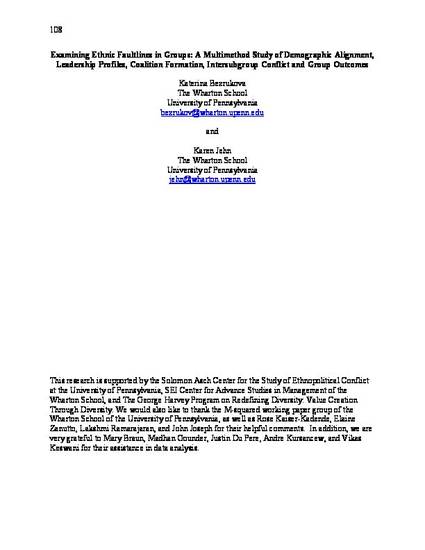
This study used multiple methods to examine the effects of group member demographic alignment on coalition formation, intersubgroup conflict, and individual and group level outcomes in common-goal groups. The study uses a 2 by 2 experimental design, crossing demographic alignment (alignment vs. no alignment) and group leadership profile (split leaders vs. no split) as between-subjects variables. Data from 5 types of measurement were used to analyze the effects of member alignment and leadership profiles. We distinguish between potential group faultlines (aligned demographic characteristics of members) and active group faultlines (members actually divide into subgroups based on the aligned demographic characteristics) and hypothesize that while potential faultlines do not automatically turn into active group divisions, leadership traits will activate divisions among group members in groups predisposed to group splits based on ethnic demographic alignment (potential group faultlines). In fact, we propose, and find, that potential faultlines, if not activated into destructive splits, can lead to positive processes and outcomes in groups. Results indicate that groups with active faultlines are more likely to form coalitions, have high levels of intersubgroup conflict and lower levels of satisfaction and group performance.
Available at: http://works.bepress.com/katerina_bezrukova/4/
